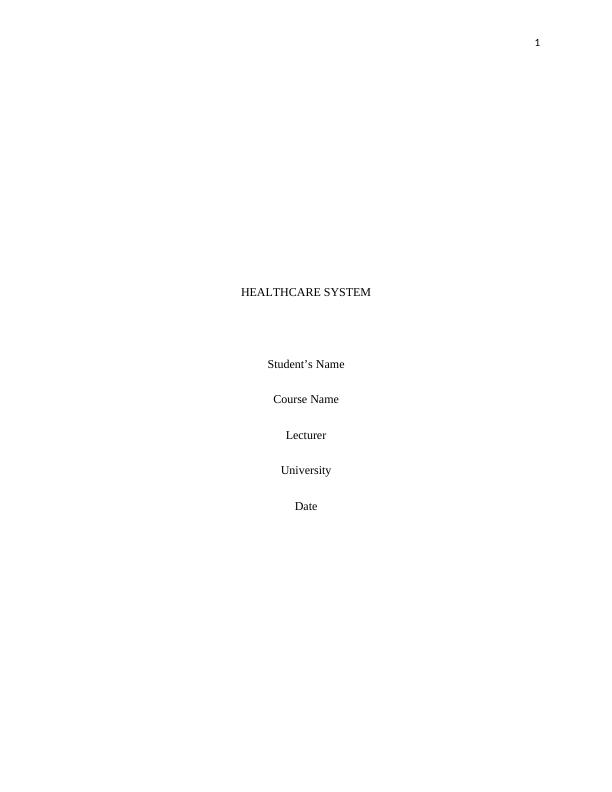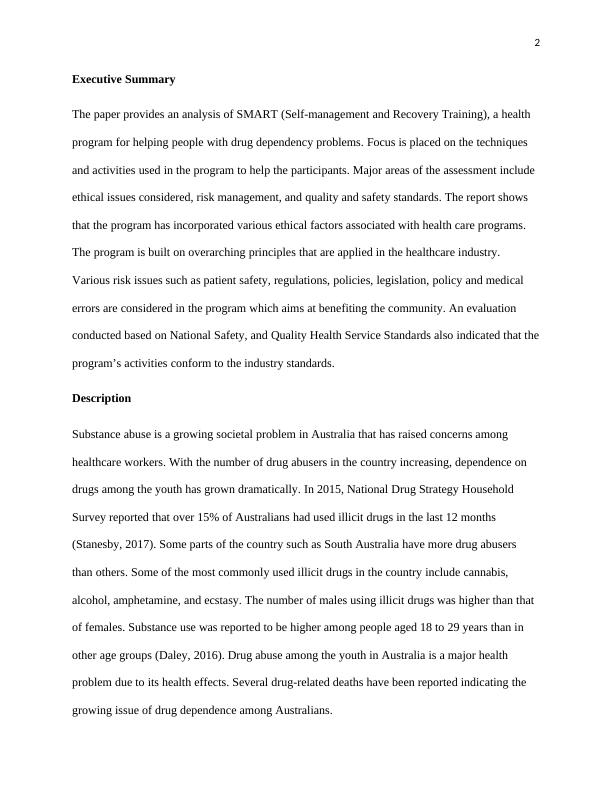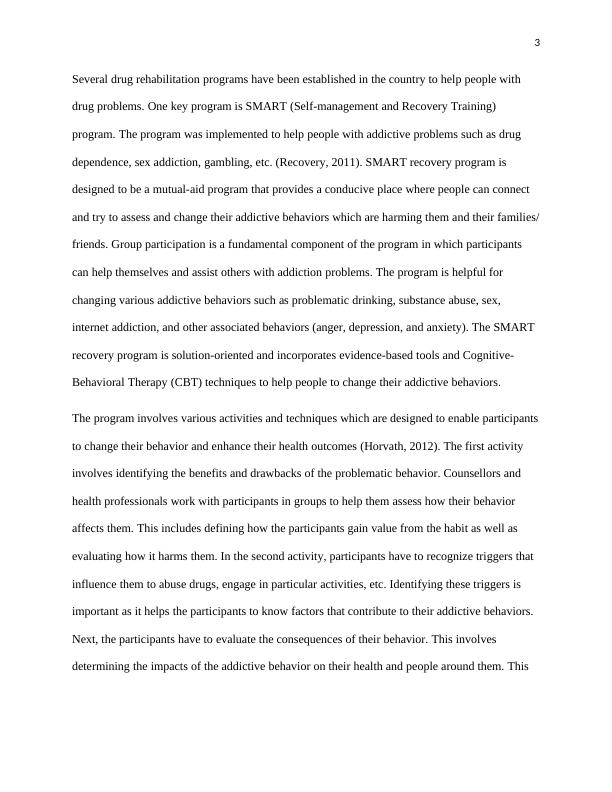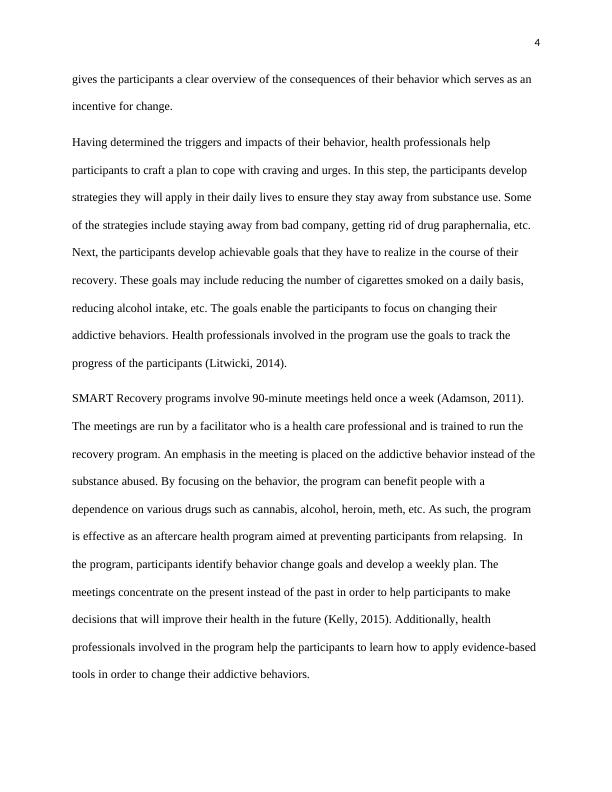SMART: Self-management and Recovery Training for Helping People with Drug Dependence Problems
13 Pages3469 Words28 Views
Added on 2020-02-24
About This Document
13 HEALTHCARE SYSTEM Student’s Name Course Name Lecturer University Date Executive Summary The paper provides an analysis of SMART (Self-management and Recovery Training), a health program for helping people with drug dependency problems. Major areas of the assessment include ethical issues considered, risk management, and quality and safety standards. An evaluation conducted based on National Safety, and Quality Health Service Standards also indicated that the program’s activities conform to the industry standards. The program was implemented to help people with addictive problems such
SMART: Self-management and Recovery Training for Helping People with Drug Dependence Problems
Added on 2020-02-24
ShareRelated Documents
End of preview
Want to access all the pages? Upload your documents or become a member.
Substance Abuse among Youths in Australia
|17
|5151
|81
Healthcare Systems Assignment
|11
|3198
|16
Illicit Drug Use: Effects of Heroin and Interventions for Management
|13
|3875
|424
Problematic Substance Use
|10
|2854
|90
Substance Abuse in Teenagers
|6
|1303
|133
Drug Addiction in Australia
|14
|3106
|108




